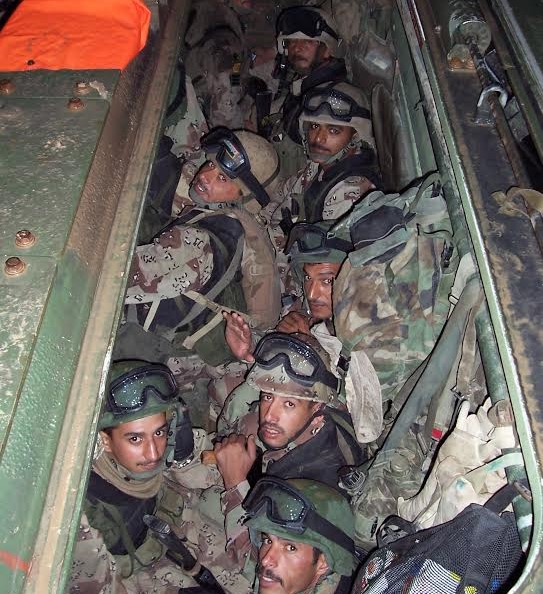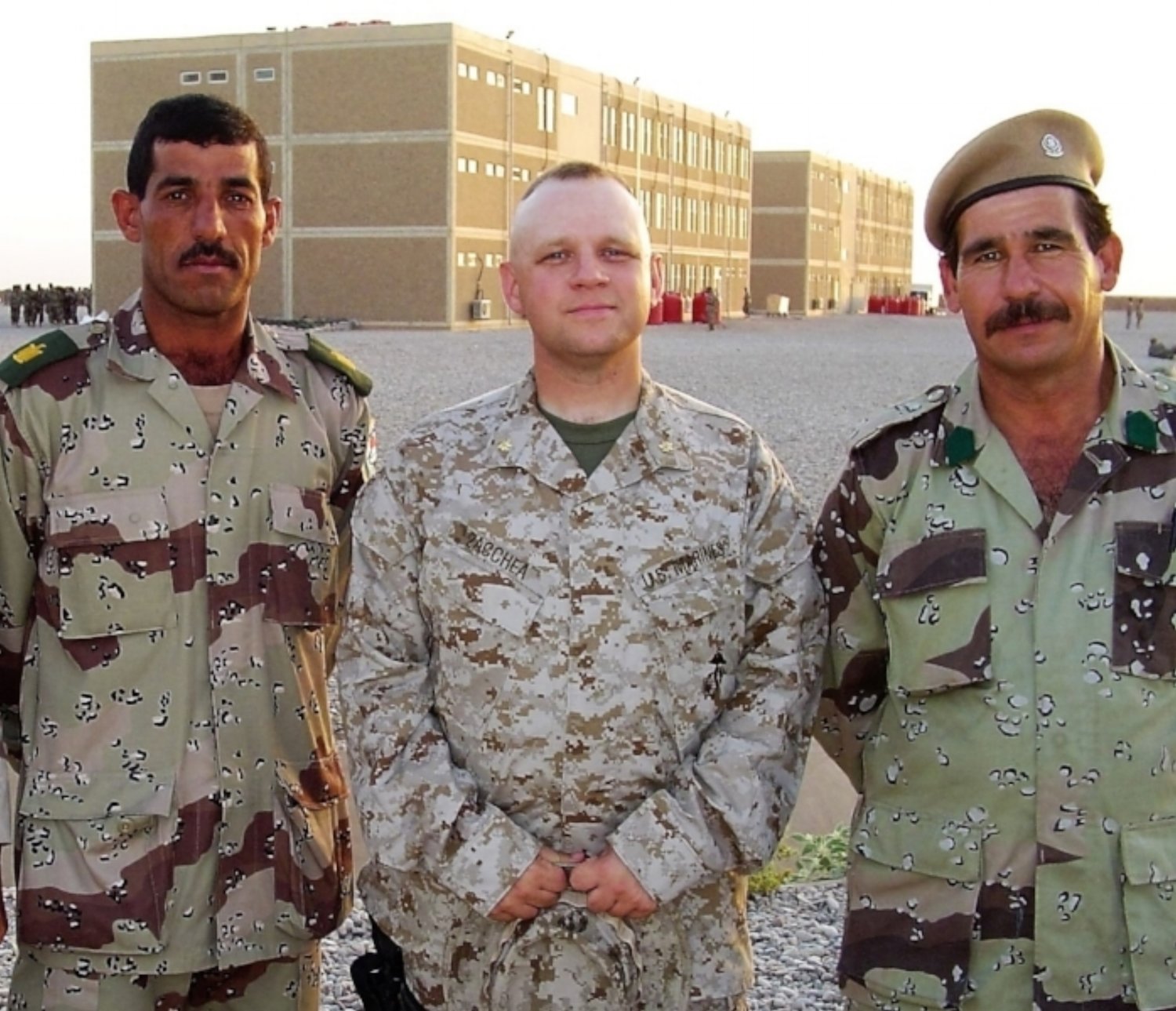Michael Zacchea ”“ Dispatch from Iraq
In the wake of the overthrow of Saddam Hussein, Michael Zacchea ’12 MBA, director of the School of Business’ Entrepreneurship Bootcamp for Veterans with Disabilities (EBV), eagerly accepted his assignment to build, train, and lead an Iraqi army.
In his just-released book, The Ragged Edge, Zacchea talks about the staggering hardships and unique challenges he faced and details the insurgent movement that ultimately gave rise to ISIS.
The recipient of two Bronze Stars, the Purple Heart, and Iraq’s Order of the Lion of Babylon, Zacchea describes not just the physical and tactical challenges the U.S. faced but also the physical and psychological toll war takes on a military leader.
And he shares the powerful saga of personal bonds of friendship with Iraqis, the importance of investing the time to develop an understanding and appreciation of another culture ”” and an assassination plot meant to kill him.
“The thing that saved me was the trusting relationship I had developed with the Iraqis. They watched out for me; they protected me. Absent that, I think it would have been a very different outcome,” says Zacchea.
He describes his mission in Iraq as like “trying to build an airplane in mid-flight.” Supplies were scarce or non-existent, from food to functioning toilets to beds, boots, radios, and vehicles. And beyond those basics were the obvious cultural and religious divides that challenged the development of a cohesive, respectable, accomplished battalion ready to battle the insurgents.
“Our military unit included Zoroastrians that the Iraqis called ”˜fire worshippers’; Yazidis, whom the Iraqis referred to as ”˜devil worshippers’; and various other ethnic and religious groups, many of whom had a longstanding hatred toward each other,” says Zacchea.
On top of that, he says, Iraqi soldiers were free to resign whenever they wished. “We never knew how many military personnel we’d have on any given day.”

Soldiers from Fifth Battalion are packed into a Marine Corps amphibious assault vehicle minutes before the breach of Fallujah in November 2004.
The Iraq War was incredibly complex because of brutal combat, says Zacchea, but also the challenges of language, religion, propaganda, and culture.
“Some of these people in the Iraqi army had fought against U.S. forces ”” or against each other. It was a crazy situation. I’m not aware of any other advisory mission where they took warring factions and tried to make a cohesive army out of them.”
Zacchea says his time there taught him many lessons, chief among them the importance of “political vigilance.”
He recounts how the Iraqis’ first election in January 2005 saw an estimated 70 percent turnout.
“I think about that versus how only one-third of Americans are willing to vote. They say things like, ”˜Oh, I didn’t go because it was raining.’
“Americans don’t risk their lives to vote. We often take that privilege for granted. People need to be politically involved.” ””CLAIRE HALL

Zacchea (center) with Abdel-ridha Gibrael (right) at Kirkush; Gibrael secretly fed information to Zacchea about the Iraqi officers.
Leave a Reply